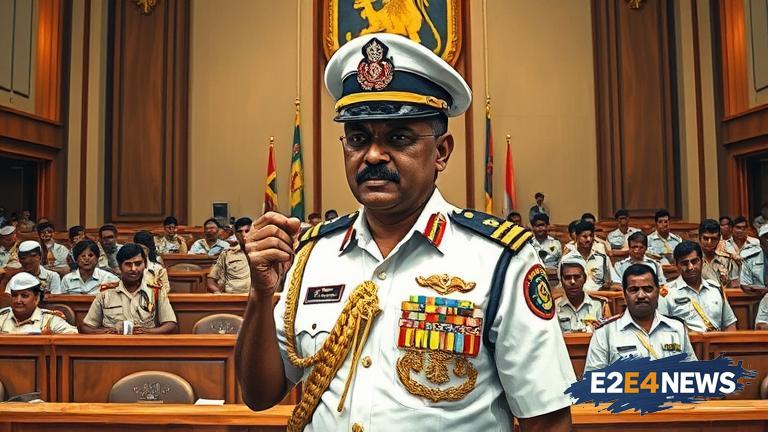The Sri Lankan Parliament has taken a significant step in addressing the country’s ongoing issues with law and order by approving a resolution to remove Deshabandu as the Inspector General of Police. This decision comes after months of controversy surrounding Deshabandu’s tenure, with many criticizing his handling of various incidents and his perceived inability to maintain stability in the country. The resolution, which was presented to the Parliament, highlighted several key concerns regarding Deshabandu’s performance, including his failure to effectively address rising crime rates and his alleged mishandling of high-profile cases. Despite facing opposition from some quarters, the resolution garnered significant support from lawmakers, who emphasized the need for a change in leadership to restore public trust in the police force. The removal of Deshabandu is seen as a crucial step towards reforming the police department and ensuring that it is better equipped to tackle the complex challenges facing the country. The Parliament’s decision has been welcomed by many, who believe that it will pave the way for a more effective and accountable police force. However, others have expressed concerns over the potential consequences of this move, citing the need for stability and continuity in the police department. The government has assured that it will work towards ensuring a smooth transition and that the new Inspector General of Police will be appointed soon. The opposition, on the other hand, has criticized the government for its handling of the situation, alleging that it has politicized the issue and compromised the independence of the police force. As the country moves forward, it remains to be seen how the removal of Deshabandu will impact the overall security situation in Sri Lanka. The international community has also been watching the developments closely, with many expressing concerns over the potential implications for human rights and the rule of law. The Sri Lankan government has faced criticism in the past for its human rights record, and the removal of Deshabandu has raised questions over its commitment to upholding these principles. Despite these challenges, the government has reiterated its commitment to ensuring that the police force is accountable and transparent, and that it will work towards building trust with the public. The removal of Deshabandu is also seen as an opportunity for the government to reform the police department and address the systemic issues that have plagued it for years. This includes addressing issues such as corruption, abuse of power, and lack of accountability, which have eroded public trust in the police force. The government has announced plans to establish an independent commission to oversee the police department and ensure that it is functioning in a transparent and accountable manner. This move is seen as a positive step towards restoring public trust and ensuring that the police force is truly independent and impartial. As the situation continues to unfold, it remains to be seen how the removal of Deshabandu will impact the country’s overall security situation and its human rights record. The international community will be watching closely, and the government will be under pressure to ensure that it upholds its commitments to transparency, accountability, and the rule of law. In the coming weeks and months, the government will face significant challenges as it works to reform the police department and address the systemic issues that have plagued it for years. However, with the removal of Deshabandu, there is a sense of optimism that the country may finally be on the path towards creating a more effective, accountable, and transparent police force. The Parliament’s decision has been hailed as a victory for democracy and the rule of law, and it is seen as a significant step towards ensuring that the country’s institutions are truly independent and impartial. As the country moves forward, it is clear that there will be many challenges ahead, but the removal of Deshabandu is seen as a crucial step towards creating a more just and equitable society. The government has assured that it will work tirelessly to ensure that the police force is reformed and that the country’s human rights record is improved. The opposition, on the other hand, has vowed to continue pushing for greater accountability and transparency, and to ensure that the government is held to its commitments. As the situation continues to unfold, it remains to be seen how the removal of Deshabandu will impact the country’s overall security situation and its human rights record. However, one thing is clear: the Parliament’s decision has marked a significant turning point in the country’s history, and it will have far-reaching implications for the future of Sri Lanka.





